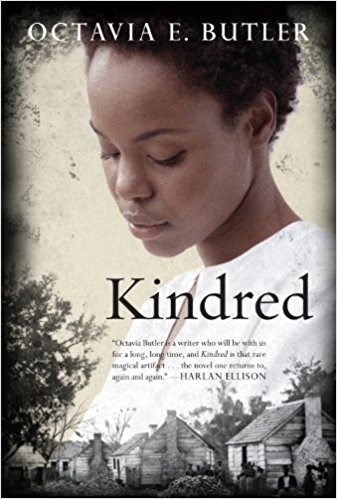When Marvel Studios’ highly anticipated movie Black Panther was released this past winter, a new buzzword entered mainstream parlance: afrofuturism.
The term is often used as shorthand for African-American science fiction; Wikipedia elaborates with this definition: “Afrofuturism is an emergent literary and cultural aesthetic that combines elements of science fiction, historical fiction, fantasy, Afrocentricity and magic realism with non-Western cosmologies in order to critique not only the present-day dilemmas of people of colour, but also to revise, interrogate and re-examine the historical events of the past.”
A mouthful, to be sure, but this is a genre label that cuts across fiction, film and music.
Black Panther (T’Challa) was introduced in July 1966 as a character in Issue #52 of the Marvel Comics series Fantastic Four. Over the next several decades, the superhero’s background and biography were developed, as was the futuristic world of T’Challa’s home, Wakanda. Wakanda is the fictitious African nation whose prosperity is derived from its mining and trading of the indestructible mineral vibranium, of which Black Panther’s suit is made.
Writer Christopher Priest and penciller Mark Texeira produced Black Panther Vol. 3 in 1998. Black Panther: The Complete Collection includes the entire third volume (62 issues) as well as seven issues of the spin-off comic The Crew. Writer Ta-Nehisi Coates and artist Brian Stelfreeze began the series Black Panther: A Nation Under Our Feet in 2016 and continue to produce issues for it. The film has since grossed $1.3 billion, becoming the highest grossing film by a black director and the ninth-highest grossing film of all time.
In the world of literary science-fiction, Octavia Butler is considered the godmother of afrofuturism. Her novel Kindred has become a sci-fi classic, having been reprinted many times since it was first published in 1979. The story, set during the 1976 U.S. Bicentennial, follows Dana as she stumbles on a time portal back to slavery era America. As she goes back and forth between past and present, she pieces together a story that, shockingly, she is also a part of.
Nalo Hopkinson is a Toronto-based Jamaican-Canadian author who has, to date, published six novels and three short story collections. Her first and best-known novel, Brown Girl in the Ring (1998), was recently adapted into a film. This dystopian novel is set in a post-economic collapse Toronto that is sealed off to keep its impoverished inhabitants from getting to the outer suburbs to which the affluent have fled. Teenager Ti-Jeanne, the story’s heroine, is apprenticing with her grandmother Gros-Jeanne in the arts of medicine and magic. But evil spirits abound with Toronto under the grip of a crime boss and evil shaman Rudy Sheldon, and Ti-Jeanne must take what she knows and do battle with malevolent forces that, it turns out, have a few revelations for her.
Nigerian-American Ndedi Okorafor is a more recent author garnering a huge audience with her blend of science-fiction, fantasy and magic realism. The Book of Phoenix was published last year and is the first in the new Who Fears Death series. In it, Phoenix is a genetically “accelerated woman” with powers beyond her years. When her best friend Saeed dies, she demands answers from Tower 7, the New York City institution in which she lives. Those answers end up having implications for both her and the entire world.
Afrofuturism has more than left its mark on pop music with the recent release of Janelle Monáe’s concept album Dirty Computer; the album was also accompanied by a short film, I Like That, set in a futuristic dystopia. Many musicians, including Sun Ra, Jimi Hendrix, Sly and the Family Stone, George Clinton, Miles Davis and Herbie Hancock have also explored afrofuturism. Hailing from Detroit in the late ’60s, Clinton’s musical project Funkadelic produced a string of legendary albums. The group’s first three — Funkadelic,
Free Your Mind… and Maggot Brain — should ideally be listened to in order as they establish the dark, dystopian world that is fleshed out on their better-known later albums.
Check out these brave new afrofuturist worlds from your local library today.
A Good Read is a column by Tri-City librarians that is published on Wednesdays. Vanessa Colantonio works at Coquitlam Public Library.



